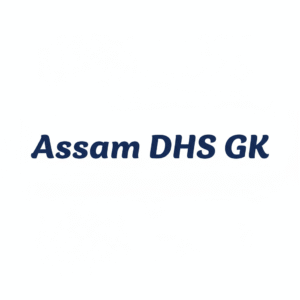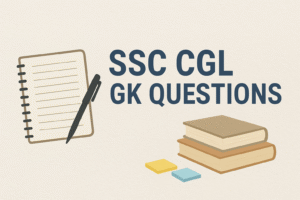The Battle of Plassey MCQ
The Battle of Plassey (1757) stands as a pivotal event in the history of India, marking the beginning of British dominance on the subcontinent. Fought between the British East India Company and the forces of Siraj-ud-Daula, the Nawab of Bengal, the battle took place near Plassey, a small village in Bengal. The British, led by Robert Clive, faced off against Siraj-ud-Daula’s army with the help of local allies, including Mir Jafar, the Nawab's treacherous commander. This victory not only secured the British control over Bengal but also set the stage for the British East India Company’s long-term colonization of India. The battle was a strategic turning point that shaped India's political landscape for centuries to come.
Question 1: The Battle of Plassey was fought in the year ________.
A. 1757
B. 1761
C. 1775
D. 1780
Show Answer
Answer: A. 1757
Question 2: The Battle of Plassey was fought between the forces of Siraj-ud-Daula and ________.
A. Robert Clive
B. Warren Hastings
C. Lord Cornwallis
D. Clive of India
Show Answer
Answer: A. Robert Clive
Question 3: Who was the Nawab of Bengal during the Battle of Plassey?
A. Shuja-ud-Daula
B. Siraj-ud-Daula
C. Mir Qasim
D. Mir Jafar
Show Answer
Answer: B. Siraj-ud-Daula
Question 4: Which battle led to the establishment of British control over Bengal?
A. Battle of Buxar
B. Battle of Plassey
C. Battle of Panipat
D. Battle of Karnal
Show Answer
Answer: B. Battle of Plassey
Question 5: Who was the commander-in-chief of the British forces at the Battle of Plassey?
A. Lord Clive
B. Warren Hastings
C. Robert Clive
D. Lord Cornwallis
Show Answer
Answer: C. Robert Clive
Question 6: The Battle of Plassey was fought in the district of ________.
A. Bihar
B. Bengal
C. Punjab
D. Uttar Pradesh
Show Answer
Answer: B. Bengal
Question 7: The Battle of Plassey resulted in the victory of the British East India Company over the ________.
A. Marathas
B. Mughals
C. Rajputs
D. Nawab of Bengal
Show Answer
Answer: D. Nawab of Bengal
Question 8: Who betrayed the Nawab of Bengal in the Battle of Plassey?
A. Mir Jafar
B. Mir Qasim
C. Shuja-ud-Daula
D. Sujan Singh
Show Answer
Answer: A. Mir Jafar
Question 9: Which was the primary reason for the British victory at Plassey?
A. Larger army
B. Strong naval support
C. Betrayal by Mir Jafar
D. Superior weaponry
Show Answer
Answer: C. Betrayal by Mir Jafar
Question 10: The Battle of Plassey is considered a turning point in the history of ________.
A. India
B. Europe
C. The World
D. South Asia
Show Answer
Answer: A. India
Question 11: Who was the British Governor-General after the Battle of Plassey?
A. Lord Cornwallis
B. Warren Hastings
C. Robert Clive
D. Lord Minto
Show Answer
Answer: C. Robert Clive
Question 12: The Battle of Plassey helped the British East India Company to establish its rule in ________.
A. Delhi
B. Madras
C. Bengal
D. Maharashtra
Show Answer
Answer: C. Bengal
Question 13: Which Mughal emperor was indirectly involved in the Battle of Plassey?
A. Shah Alam II
B. Akbar
C. Jahangir
D. Aurangzeb
Show Answer
Answer: A. Shah Alam II
Question 14: How many soldiers were there in the British army during the Battle of Plassey?
A. 3,000
B. 5,000
C. 10,000
D. 2,000
Show Answer
Answer: A. 3,000
Question 15: The Battle of Plassey took place near the ________ river.
A. Yamuna
B. Ganges
C. Brahmaputra
D. Hooghly
Show Answer
Answer: D. Hooghly
Question 16: After the victory at Plassey, who was made the Nawab of Bengal by the British?
A. Mir Qasim
B. Mir Jafar
C. Shuja-ud-Daula
D. Siraj-ud-Daula
Show Answer
Answer: B. Mir Jafar
Question 17: The British East India Company’s victory in the Battle of Plassey led to the control of which province?
A. Punjab
B. Bengal
C. Madras
D. Uttar Pradesh
Show Answer
Answer: B. Bengal
Question 18: What was the significant impact of the Battle of Plassey on the Indian subcontinent?
A. End of Mughal Empire
B. Beginning of British colonial rule in India
C. Establishment of the Maratha Empire
D. Expansion of the Rajput kingdom
Show Answer
Answer: B. Beginning of British colonial rule in India
Question 19: The Battle of Plassey was fought between the British East India Company and the forces of ________.
A. Marathas
B. Mughals
C. Nawab of Bengal
D. Rajputs
Show Answer
Answer: C. Nawab of Bengal
Question 20: What was the primary reason for Siraj-ud-Daula’s defeat in the Battle of Plassey?
A. Lack of support from the Mughals
B. British superior weaponry
C. Betrayal by his own commanders
D. British naval superiority
Show Answer
Answer: C. Betrayal by his own commanders
Question 21: Which Indian ruler was defeated in the Battle of Plassey?
A. Shuja-ud-Daula
B. Mir Qasim
C. Siraj-ud-Daula
D. Rajendra Chola
Show Answer
Answer: C. Siraj-ud-Daula
Question 22: Who was the commander of the Nawab's forces in the Battle of Plassey?
A. Mir Jafar
B. Shuja-ud-Daula
C. Mir Qasim
D. Najib-ud-Daula
Show Answer
Answer: A. Mir Jafar
Question 23: Which event directly followed the victory at Plassey?
A. The British annexation of Bengal
B. The Treaty of Paris
C. The capture of Delhi
D. The formation of the British Raj
Show Answer
Answer: A. The British annexation of Bengal
Question 24: Who was the leader of the British forces in Bengal before the Battle of Plassey?
A. Robert Clive
B. Lord Cornwallis
C. Warren Hastings
D. George Warren
Show Answer
Answer: A. Robert Clive
Question 25: The British East India Company gained control over Bengal after the Battle of Plassey through the __________.
A. Treaty of Lucknow
B. Treaty of Allahabad
C. Treaty of Surajgarh
D. Treaty of Plassey
Show Answer
Answer: D. Treaty of Plassey
Question 26: The Battle of Plassey is considered the first significant victory of the British in the history of the Indian __________.
A. Freedom struggle
B. Raj
C. Empires
D. Army
Show Answer
Answer: B. Raj
Question 27: Who was the main British strategist responsible for the success of the Battle of Plassey?
A. Robert Clive
B. Warren Hastings
C. Lord Cornwallis
D. Lord Minto
Show Answer
Answer: A. Robert Clive
Question 28: Which Indian kingdom’s military helped the British in the Battle of Plassey?
A. Maratha
B. Rajput
C. Mysore
D. Bengal
Show Answer
Answer: D. Bengal
Question 29: The Battle of Plassey had a significant impact on the control of ________ in India.
A. The Mughal Empire
B. The Maratha Confederacy
C. British rule
D. Rajput states
Show Answer
Answer: C. British rule
Question 30: The Battle of Plassey marked the beginning of the British East India Company’s domination over the ________.
A. Marathas
B. Mughals
C. Rajputs
D. Indian subcontinent
Show Answer
Answer: D. Indian subcontinent
Question 31: The Battle of Plassey was fought between the British East India Company and the forces of the Nawab of Bengal at which location?
A. Plassey
B. Buxar
C. Ganga
D. Calcutta
Show Answer
Answer: A. Plassey
Question 32: Who was the Mughal emperor when the Battle of Plassey was fought?
A. Bahadur Shah Zafar
B. Akbar
C. Shah Alam II
D. Humayun
Show Answer
Answer: C. Shah Alam II
Question 33: Which of the following was a major reason for Siraj-ud-Daula's dissatisfaction with the British East India Company?
A. British interference in Bengal's internal affairs
B. British taxation policies
C. British support for his rivals
D. All of the above
Show Answer
Answer: D. All of the above
Question 34: The Battle of Plassey was won by a combination of British tactics and ________.
A. Naval superiority
B. Mir Jafar’s betrayal
C. Better armaments
D. Strong leadership
Show Answer
Answer: B. Mir Jafar’s betrayal
Question 35: What was the immediate consequence of the British victory in the Battle of Plassey?
A. The annexation of Bengal into the British Empire
B. The establishment of British supremacy in India
C. The downfall of the Mughal Empire
D. The expansion of Maratha territories
Show Answer
Answer: B. The establishment of British supremacy in India
Question 36: Who was the British diplomat who negotiated with Mir Jafar during the Battle of Plassey?
A. Robert Clive
B. Warren Hastings
C. Charles Stewart
D. Philip Francis
Show Answer
Answer: A. Robert Clive
Question 37: Which of these was a key tactic employed by the British in the Battle of Plassey?
A. Use of guerilla warfare
B. Employing local allies
C. Heavy naval bombardment
D. None of the above
Show Answer
Answer: B. Employing local allies
Question 38: Which of these was NOT a part of the outcome of the Battle of Plassey?
A. The creation of British political dominance in India
B. The rise of Mir Jafar as the Nawab of Bengal
C. The British East India Company gaining control over Bengal
D. The formal end of the Mughal Empire
Show Answer
Answer: D. The formal end of the Mughal Empire
Question 39: The Battle of Plassey marked the beginning of the British East India Company's role in Indian politics as a ________.
A. Military force
B. Colonial power
C. Political mediator
D. Cultural influence
Show Answer
Answer: B. Colonial power
Question 40: What was the strategic importance of the region where the Battle of Plassey took place?
A. It was close to the Mughal Empire’s capital
B. It was a trade hub for the British East India Company
C. It was a strategically located fort
D. It was an agricultural region
Show Answer
Answer: B. It was a trade hub for the British East India Company
The Battle of Plassey was a defining moment in Indian history, marking the rise of British power and the beginning of their colonial rule in India. The victory secured by the British East India Company under Robert Clive laid the foundation for British political and economic dominance in the subcontinent. The events surrounding the battle, including the betrayal by Mir Jafar and the strategic alliances formed, demonstrated the complex interplay of local politics, power struggles, and foreign intervention. Understanding the significance of this battle through MCQs helps to grasp the historical importance and consequences that shaped India's future trajectory under British rule.
Other MCQs –
30 Important Champaran Satyagraha MCQs | Prepare for Competitive Exams





